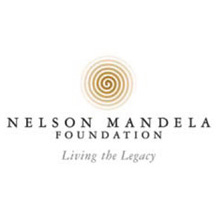
April 6, 2009 – The Nelson Mandela Foundation got one step closer to launching its schools dialogue programme when it presented its plan at the Race and Values Inter-Provincial Network Meeting organised by the Department of Education in Pretoria on Thursday, April 2.
A partnership between the Foundation, the Department of Education, Unicef and the Valued Citizens Initiative (VCI), the dialogue programme aims “to provide a platform for learners to voice their concerns around issues of human rights”, said the Foundation’s education specialist, Sekete Khanye.
Thursday’s meeting was held to seek buy-in for the dialogues from key stakeholders, both nationally and provincially.
“We met with the Department of Education to discuss three things,” said Khanye, “namely the methodology we’re planning on using; the logistical issues around the numbers of learners, teachers, transport and so on; and most importantly the content of the proposed dialogues.”
At the meeting, Khanye laid out the objectives of the Nelson Mandela Foundation as a whole before explaining the aim of the school dialogues and the implementation plan.
The dialogues will be held in all nine provinces, two in each province, before culminating in a national dialogue set for March next year. During the first cycle 20 public high schools from a single district in the province will be selected. One teacher and three students from each school will be chosen to take part in the two-day dialogues.
The dialogues will be held over weekends or public holidays so that learners do not miss school. The Foundation will provide transport and catering.
Having explained the implementation plan, Khanye discussed the methodology.
Stage one of the six-step dialogue process starts with a relationship-building phase before stage two identifies concerns raised by the learner community. Stage three explores those concerns as well as trying to determine their underlying causes. Stages four and five provide a plan for the learners and educators to make decisions and take action on their concerns, while the final stage looks at ways of improving the process. Throughout the dialogue there is a constant recording, monitoring and reviewing of the proceedings.
Khanye’s proposal was met with positive interest. He pointed out that there was a limited budget for dialogues at this stage but that the idea was to empower schools to hold their own dialogues without needing outside intervention in the future.
The chairperson of the meeting, the acting director of the Education Department: Race and Values, Claire Dyer, described the dialogues as “an exciting initiative”.